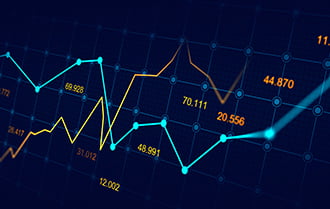What is CFD Contract for Difference

A contract for differences (CFD) is considered one of the most popular instruments for trading, but only if you have an idea of what you’re doing.
They are cost-effective, tax-efficient, and highly leveraged instruments that allow you to trade flexibly across a range of various markets and asset classes.
Many professional traders and funds using CFDs as an essential part of their portfolio are evidence of the benefits CFD trading is providing to your account.
CFD allows you to trade on the price movement of any financial market, like stocks, commodities and currencies.
It is a contract between the trader and the broker company that allows investors to trade those financial instruments on margin and benefit from the price movement (difference), except that, when trading a CFD, you don’t own that asset.
For example, suppose you believe that X company is performing well and the stock price will go up. In that case, you can either buy that stock or simply buy the CFD where you don’t own the stock, but instead, you make an agreement with the stocks broker, whereby you agree that if the price goes up, you will make profits, and if it goes down you will make losses.
In adverse, if you believe that the company’s stock price will go down, then you can sell the stock (Short) even if you don’t own it.
Check out the Best CFD Brokers in Dubai
One of the most popular features of trading CFDs is that you can buy (Long) or sell (Short) on margin, and your position will be leveraged, giving you the ability to trade in a much higher value than the money you deposited.
In other words, if the broker company is offering leverage of 1:20, it means that you only need to buy 20% of the position, and you will be able to trade in a full value.
Let’s take an example to understand it better.
Let’s suppose you plan to buy 100 shares of one company; each stock costs you $20, which means you need to pay $2,000 (100*$20) to buy them.
However, by trading CFDs and since you are leveraged, you can pay only 20% of the position, which is $400 instead of $2,000, and trade as if you paid the full value.
Now let’s say the share price goes up to $25, and the total value became $2,500 (100 shares*$25). Your profit will be $500.
In other words, you have earned the same profit as if you are buying 100 units of the real stock paying only 20% of the position since you are using the leverage.
However, keep in mind that just like you can experience higher profits with little money when trading CFDs, you also can experience higher losses if the market goes in the opposite direction of your position.
•Profit From Rising and Falling Markets
If you speculate that the price of one stock, currency pair, or commodity price will go down, you can still benefit from this potential price drop by making a CFD trade where you sell (short) that asset without the need to own it.
Shorting is not possible when investing in non-CFDs since you need to own that asset before you can sell it.
•Margin & Leverage
When trading CFD, you don’t have to pay for the full position,
CFDs provide an opportunity for traders to leverage their trading. You don’t need to buy the full position; you can only buy a fraction and put a small margin deposit to hold a. It also provides substantial flexibility.
•Great Way of Hedging
Let’s assume you own physical gold bars, and you plan on holding your bars over the long term.
You’ve heard that the precious metals may be in for a downturn, and you want to protect yourself from any potential losses without selling the bars.
In this case, you can use CFDs and open a sell (short) position. If your predictions were right and the market goes down, the profit you will make from the CFD trade will offset the loss you incurred on your physical gold value.
•Wide Range of Options
The wide range of CFDs is a major advantage. CFD brokers can help you trade on shares of CFDs listed in different regions.
Besides, it also allows traders to trade in commodities and currencies. This wide range of options makes it easy for you to choose the right product.
CFDs allow instant access to all global markets with a single account. Therefore, CFDs are good options for investors who are looking to diversify their portfolios.
•No Expiration Date
Investors often take the expiration date in mind when it comes to investing in options and futures, but the situation is different in CFDs. It gives you flexibility and lets you decide the period of your investment.
•Financing Cost
One of the major drawbacks of CFDs is that you have to pay financing fees when holding positions overnight and more extended periods.
Since you have to pay a financing fee, CFDs isn’t a good option for long-term investment. Therefore, you need to utilize CFDs for investment with a period shorter than a year.
•Psychological Pressure
Many traders often get too far driven by gree
d and lose their entire deposit.
Therefore, you have to keep a cool head when trading in CFDs because leverage is a double-edged sword, and it can cause big profits or losses. A higher degree of control is essential in such kind of situations.
•No Real Shares Investment
With trading CFDs, you are trading on the asset’s price movement, and there is no physical ownership of the asset.
Check out the Best CFD Brokers in Dubai
Thanks to CFDs, it’s possible for investors to trade with a small amount of money in shares, commodities, cryptocurrencies and currencies. For many people, the benefits of CFDs outweigh the drawbacks. However, it is essential to keep in mind that many risks are associated with trading in CFDs.